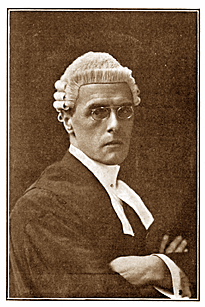Mr William Smith
Rank or Title
Date of Death
7 Jan 1932
Place of Birth
World War I Address
Place of Death
Grave Location
Soldier or Civilian
- Civilian

William Smith was the Town Clerk of Luton during World War 1. He was appointed on September 3rd, 1912, and held the office until his death on January 7th, 1932 - just three days after his 63rd birthday.
Born in Liverpool, his municipal career began in Cardiff in 1890. In 1893 he was appointed assistant Town Clerk of Colchester and then for five years from May 1907 was Town Clerk of the Essex town. He was chosen as Town Clerk of Luton from among 70 candidates.
During the First World War he was also Clerk to the Military Service Tribunal and honorary Secretary of the Prisoners of War Fund which sent out parcels to local men held captive. Food and fuel control in Luton were also among his responsibilities.
His skills came to the attention of Government officials and the Council was asked to release him to take on the position of Executive Officer for a Government forage department which had been set up. The Council reluctantly agreed but Mr Smith eventually withdrew from the post as he believed his primary duty was to the welfare of Luton. He was working in his office as usual on the day of his death.
Mr Smith had been attended by a London specialist for heart trouble for the last two years of his life but his death came suddenly and unexpectedly in his sleep at his home in Lansdowne Road.
A huge civic funeral procession with a police escort and representatives of Luton's civic, business and cultural life in attendance was held for him on the Monday following his death. The funeral service was at King Street Congregational Church, "his spiritual home," and burial was at the General Cemetery in Rothesay Road.
A Luton News report on the day of Mr Smith's death said: "Although regarded by some as an autocrat, those who were his intimate friends knew him as a real man. Seemingly austere and dignified, and even severe, he was a man of large human sympathies and most jovial disposition. To his staff he was a father figure, ever supporting them with every bit of the loyalty that he expected, and always commanded, from them."
He left a widow and a married daughter, Mrs R. A. Gibbs.
Individual Location
Author: David



Add comment